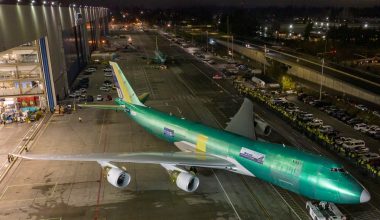The 21st century has witnessed the dawning of numerous technological advancements, especially in the aviation sector. With growing concerns about the environmental impacts of burning fossil fuels, the search for cleaner, sustainable energy alternatives has become paramount. Among these, solar technology has taken the spotlight by revolutionizing the way people think about power and its application in various industries.
The aviation industry is no exception to this transformation. With fuel costs on the rise and the urgent need to reduce carbon emissions, the focus has turned to the potential incorporation of a variety of solar panels into aircraft designs. By harnessing the sun’s inexhaustible energy, solar panels can offer several advantages that promise a brighter future for the world of aviation.

Read on to learn more.
- Reduction Of Operational Costs
Fuel has traditionally been one of the largest expenses for any airline. A move towards solar technology can greatly mitigate these costs. When an aircraft utilizes solar panels, they can generate electricity directly from sunlight, which can be used to power onboard electrical systems or even supplement propulsion in some designs. Over time, this can result in significant savings, making flights more economical for the public.
- Decreased Carbon Emissions
Not only does solar technology offer financial savings, but it also has significant environmental implications. Every kilowatt-hour generated from these panels can result in fewer greenhouse gases being released into the atmosphere. By shifting even partially to solar energy, an aircraft can significantly reduce its carbon footprint. This can help combat climate change and position the airline as an industry leader that promotes sustainable practices.
- Extended Flight Ranges
Another advantage of integrating solar technology into aircraft designs is the potential for extended flight ranges. As solar panels become more efficient, they can provide a consistent energy source throughout daylight hours. This means that for certain aircraft, particularly unmanned aerial vehicles (UAVs) and drones, they can fly for extended periods without needing to refuel.
- Weight And Fuel Efficiency
Modern solar panels are increasingly lightweight and efficient. By incorporating solar systems into aircraft designs, the overall weight of the plane can be significantly reduced. Less weight translates to lower fuel requirements, which in turn increases the aircraft’s fuel efficiency. An aircraft that achieves the same range with less fuel becomes a competitive asset in today’s aviation market.

- Potential For Grid Independence
Imagine an aircraft that can operate independently of the grid. This dream can become a reality with the right solar infrastructure. For instance, aircraft hangars equipped with solar panels can store excess energy in battery storage systems. This stored energy can then be used to power the aircraft, making it less reliant on grid electricity. Such innovations can revolutionize remote aviation operations, especially in areas where electricity is unreliable or costly.
- Enhanced Durability And Maintenance
Solar panels have the added benefit of being highly durable with relatively low maintenance requirements. Unlike traditional engines that have numerous moving parts susceptible to wear and tear, solar panels have no moving parts. This can reduce maintenance costs and extend the life of the power system, providing long-term benefits for airline operators.
- Opportunities For Innovation And Development
The integration of solar panels in aircraft offers a unique challenge that can spur innovation. Engineers and designers are pushed to think outside the box, resulting in groundbreaking designs and concepts. This can pave the way for other technological advancements in the industry, pushing the boundaries of what’s possible in aviation.
- Consumer Appeal And Branding
In a world where consumers are becoming more eco-conscious, flying with an airline that prioritizes sustainability can be a strong selling point. Airlines that integrate solar panels into their operations can leverage this as a unique selling proposition, attracting environmentally conscious travelers and building a strong brand image.
- Scalability For Future Growth
Solar technology is scalable. As the aviation industry grows, the energy requirements will naturally increase. Solar panels offer a scalable solution by ensuring that as the demand grows, the energy supply can keep pace. This scalability can help ensure that an airline can continue to expand without the constant concern of escalating fuel costs.
- Contribution To Global Renewable Energy Goals
The global community is setting ambitious targets for renewable energy adoption. By integrating solar panels into aircraft, the aviation industry can contribute to these global goals. Every flight that utilizes solar energy is a step closer to a world powered by clean, renewable sources.
Final Thoughts
The aviation industry is on the brink of a transformative era. Solar energy, with its multitude of benefits as mentioned above, holds the promise of a cleaner, more efficient, and more sustainable future for air travel. As technology continues to advance and the advantages of solar panels in aircraft become even more pronounced, the sky is not the final frontier; it’s just the beginning.






